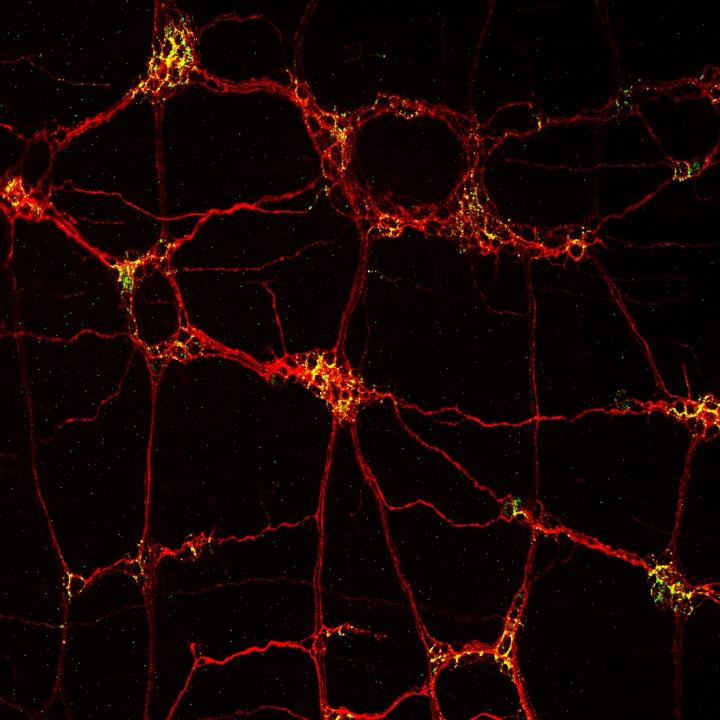
Credit: Photo: Klose/Charité
How can we further improve deep brain stimulation and its use in the treatment of neurological disorders? How does the nervous system regulate both protective and chronic immune responses? These are the questions now being investigated by two research teams headed by Dr. Andreas Horn and Dr. Christoph Klose at Charité – Universitätsmedizin Berlin. Funded by the German Research Foundation (DFG), these two Emmy Noether Independent Junior Research Groups will receive more than €1.7 million for a period of three years.
The DFG’s ‘Emmy Noether Programme’ aims to support outstanding early career researchers in gaining the experience necessary to satisfy the prerequisites for appointment as a university professor. By funding Dr. Horn and Dr. Klose, the DFG has chosen to support two exceptionally qualified early career researchers.
Dr. Horn’s Emmy Noether Independent Junior Research Group will be based in the Department of Neurology’s Movement Disorders and Neuromodulations Section. Dr. Horn’s primary aim is to improve deep brain stimulation (DBS) through the use of modern imaging technology. DBS is used to treat a range of nervous system disorders, including Parkinson’s disease, obsessive-compulsive disorder and epilepsy. DBS electrodes are implanted into the patient’s brain and connected to an impulse generator. Similar to a pacemaker, this device then delivers electric currents to a very specific target area. Recent research indicates that treatment success is not merely determined by whether the relevant local nerves are stimulated, but also by the manner in which the impulses are distributed toward global brain networks, affecting the entire brain. “Specifically, we want to use magnetic resonance imaging to further identify and study the best therapeutic targets networks to modulate in each disorder. We also want to study the extent to which these targets form part of larger networks,” says Dr. Horn. He adds: “We will also explore ways of identifying therapeutic targets in individual patients, such as taking into account an individual patient’s brain anatomy. We hope to use this research to make deep brain stimulation even more effective.” The DFG has awarded the junior research group more than €700,000 in funding for a period of three years. Subject to the successful evaluation of their interim report, this funding may be extended by an additional €600,000 and another three years.
Dr. Klose’s Emmy Noether Independent Junior Research Group will be based in the Institute of Microbiology, Infectious Diseases and Immunology. He and his team will focus on the ways in which nervous system-mediated processes regulate the immune system and affect inflammatory processes. This work centers on the regulation of so-called type 2 immune reactions, which are responsible for regulating a range of different bodily processes. In addition to being responsible for allergies and mediating the body’s immune response against parasitic worms, type 2 immune responses can also regulate wound healing processes and affect adipose tissue metabolism. “We want to understand the effects of neural stimuli – such as stress – on type 2 immune responses,” explains Dr. Klose. “We hope that our findings will lead to new forms of allergy treatment.” Over the next three years, his research will receive more than €1 million in funding from the DFG. Subject to the successful evaluation of the group’s interim report, this funding may be extended by an additional €500,000, to be paid over a period of two years.
The DFG’s ‘Emmy Noether Programme’
The ‘Emmy Noether Programme’ gives exceptionally qualified early career researchers the chance to lead an independent junior research group in order to qualify for the post of university professor. This offers award holders the opportunity to satisfy the prerequisites for appointment as a university professor without having to complete the traditional habilitation process. The program, which is open to researchers from any scientific discipline, is generally aimed at early career researchers with up to four years of postdoctoral experience. Funding is awarded for three years in the first instance. Funding may be extended subject to the successful completion and evaluation of an interim report.
###
Media Contact
Manuela Zingl
[email protected]
Original Source
https:/




